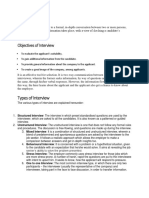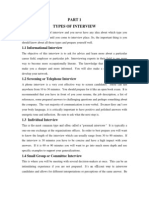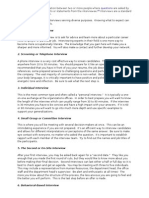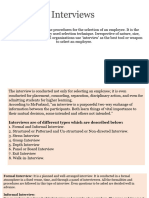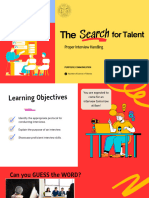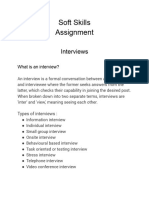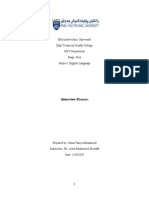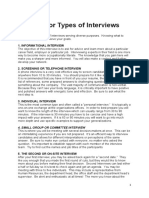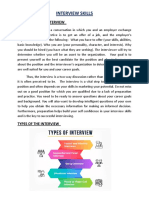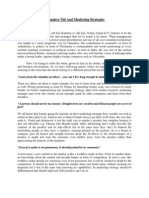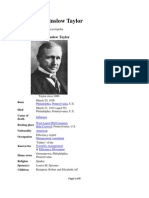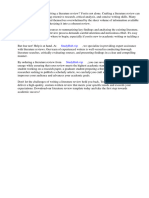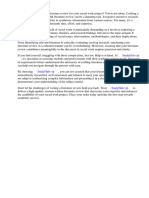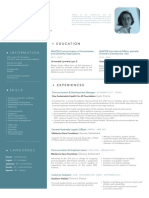0% found this document useful (0 votes)
177 views14 pagesInterview Presentation
An interview is a formal meeting where a job applicant is asked questions to determine if they are suitable for a position. Interviews typically involve several rounds and modes, including telephonic, face-to-face, and video interviews in the initial screening process. Later rounds assess technical skills and soft skills through technical and HR interviews. Different types of interviews test candidates in varied ways such as one-on-one, panel, round-robin, and stress interviews.
Uploaded by
Gayaz SkCopyright
© © All Rights Reserved
We take content rights seriously. If you suspect this is your content, claim it here.
Available Formats
Download as PDF, TXT or read online on Scribd
0% found this document useful (0 votes)
177 views14 pagesInterview Presentation
An interview is a formal meeting where a job applicant is asked questions to determine if they are suitable for a position. Interviews typically involve several rounds and modes, including telephonic, face-to-face, and video interviews in the initial screening process. Later rounds assess technical skills and soft skills through technical and HR interviews. Different types of interviews test candidates in varied ways such as one-on-one, panel, round-robin, and stress interviews.
Uploaded by
Gayaz SkCopyright
© © All Rights Reserved
We take content rights seriously. If you suspect this is your content, claim it here.
Available Formats
Download as PDF, TXT or read online on Scribd
/ 14










